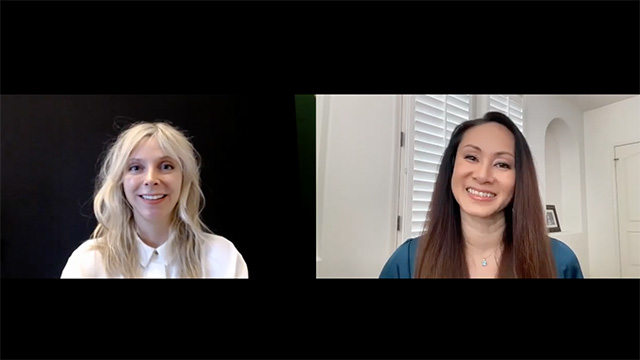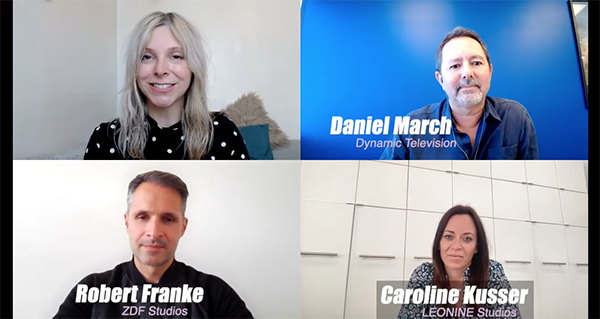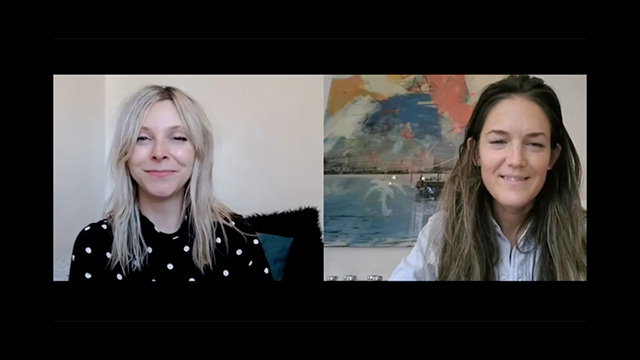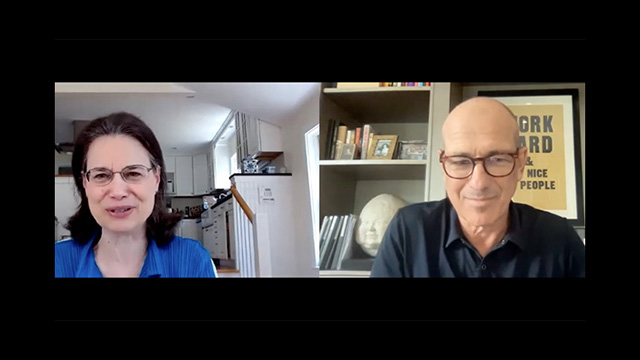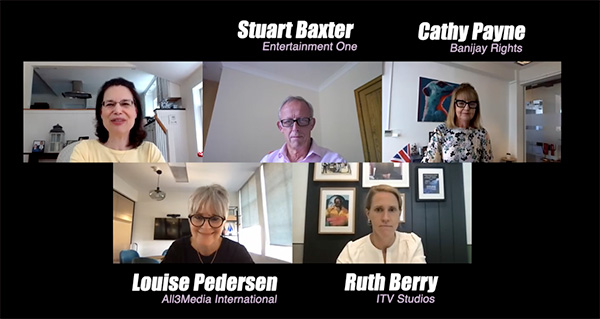Robert and Michelle King joined the TV Drama Festival today to talk about their long-running collaboration that has resulted in such hit shows as The Good Fight and Evil.
The Kings, whose credits include creating and exec producing Paramount+’s The Good Fight and Evil and executive producing Showtime’s Your Honor, took part in a keynote conversation with TV Drama’s Anna Carugati that can be viewed here.
The session began with a conversation about The Good Fight, which frequently takes inspiration from current events in the U.S. The show, Michelle said, serves as an outlet for the writers’ thoughts on big-picture events in the world. “Otherwise you stew about it and go quietly mad.”
“The downside is you can get swamped by events,” Robert added. Asked about the themes they want the show to explore, Robert noted: “Right now what drives the show is the fear of civil war in America. Worries about a Balkanization of American politics. You see this in Ukraine too. How do people live their lives, start their businesses, run their businesses, as a kind of warfare is going on around them? So we’re taking it to a political dimension.”
On the inspiration for Evil, meanwhile, Robert said: “I think our relationship served as inspiration, just as it did for The Good Wife and even The Good Fight, in that we have a very strong religious distinction between us.” While Robert is Catholic and “goes to Mass every week,” Michelle identifies as Jewish, “but on the agnostic side of it. As long as we’ve known one another for over 30 years, we’ve been talking about how does one explain evil in the world? Robert goes more toward a supernatural demonic explanation, and I’m more likely to look at psychology or sociological explanations.”
Robert added, “We were intent on having two people on opposite ends of this question, but had respectful conversations and even loving conversation and didn’t, as in most of American society, now start screaming at each other and throwing things. Even though it has scares and comedy, the emotional core is two people who have a very different epistemological view of life but still are able to talk about it and not hate each other.”
Robert then talked about the important lessons learned from directing episodes. “You realize the parts where you’ve written yourself a problem that there’s no way to get out, either because you’re writing something that’s super expensive, there’s no way to do it, or more likely that structurally you’d start to realize, I didn’t need this beginning of the scene. When you’re spending a lot of time getting coverage on something that’s irrelevant, you start hating yourself, especially if you are the writer. But even more importantly, I think it directs you toward what you need in the editing room. You’re always aware when you sit down in the editing room, Why didn’t the director get that in? Well, I’m the director. What an idiot that I didn’t get this shot that I really need.”
The conversation then moved to Your Honor, based on an Israeli show. “You’re always looking for an innocent [person] who has to put him or herself in a position where they break the law or have to bend the rules. And to do it for a loved one, like a child. There just seemed to be nothing that was more heartrending and understandable.”
Michelle then talked about Happy Face, adapted from the true-crime podcast of the same name. “It’s such an interesting way to look at a world we’re used to looking at as [being] about serial killers. No, what we’re more interested in is the collateral damage—the families of both the killers and the victims.”
 TVDRAMA
TVDRAMA
